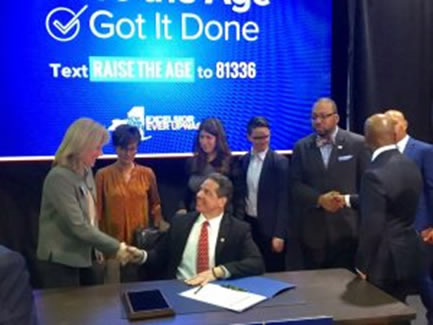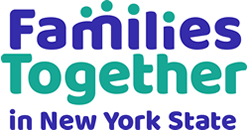 Our goal is to ensure that ALL children and youth have the support they need in order to succeed. We represent thousands of families from across the state whose children have been involved in many systems including mental health, substance abuse, special education, juvenile justice, and foster care. Our board and staff are made up primarily of family members and youth who have been involved in these systems.
Our goal is to ensure that ALL children and youth have the support they need in order to succeed. We represent thousands of families from across the state whose children have been involved in many systems including mental health, substance abuse, special education, juvenile justice, and foster care. Our board and staff are made up primarily of family members and youth who have been involved in these systems.
At our core, we believe in the idea of “nothing about us without us.” To us, that means that families and young people should always have a seat at the table when shaping policies that affect our lives. That’s why we make every effort possible to ensure that our own advocacy is driven by the experiences of families and the young people- that we don’t just talk the talk, but live up to the standards we have for the systems that serve us.
As the statewide family network, FTNYS has built a vast network of family and youth peer support programs, Family Peer Advocates, Youth Peer Advocates, and regional chapters across the state. Families Together has a long history of leveraging this network to organize and lead successful legislative and systems advocacy campaigns, passing reforms that were politically difficult, not initially understood by the public, and comprehensive in scope. These initiatives include the Timothy’s Law Campaign, the Close to Home initiative, establishing Family Peer Support as a service supported by the Office of Mental Health and a part of the State Plan Amendment for Medicaid Managed Care, and most recently, the Raise the Age NY campaign.
Central to all of these campaigns was our stubborn insistence to put the stories of impacted families and young people front and center, empowering these families to share their truth, and ultimately transforming these experiences into a powerful force for good. As history shows, our stories can change the world.
The Families Together Policy Agenda is created by our network of families and young people. To best represent the family voice, we build our priorities by collecting feedback and ideas through focus groups, interviews, coalition meetings and an annual policy survey. We advocate for these priorities through public testimony, public awareness campaigns, government task forces and committees, legislative meetings, press conferences and our annual Family Empowerment Day, formerly known as the Legislative Awareness Day and Luncheon.
